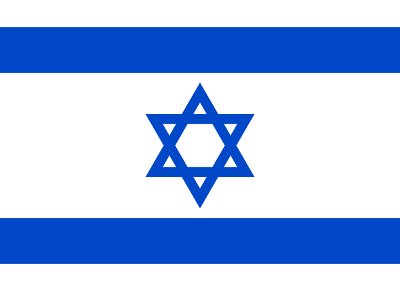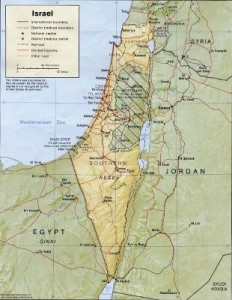World news
“Palestinians” under international law

The Arabs residing in Palestine, a small group of the Arab people, who have been named “The Palestinian Arab People” by the Soviet dezinformatsiya1 claim political self determination in Palestine as a separate “Palestinan people” as provided by “natural law” and International Law” and also make the claim as a minority of Arab people who are much oppressed by the majority Jewish People. The UN General Assembly has adopted their claim in its Resolution 3236, November, 1974. The UN General Assembly cannot make International Law but it does greatly influence world public opinion.
Are Palestinians a people?
Historically the so called “Palestinians” have not met the definition of a “people” or “nation” except as a group of an undifferentiated part of the Arab people currently residing in Palestine. They are not indigenous to Palestine. The Jews are the only surviving indigenous people of Palestine. Some Arabs arrived through their conquest in the Seventh Century. For 400 years prior to 1920 Palestine was ruled by the Ottoman Empire. A large group came from Egypt at the time of Muhammad Ali’s invasion in 1832 and settled mainly along the south coastal region of Palestine, predominantly around Gaza. However they were freed of Egyptian Rule with the help of Britain in 1840. We find to this day many Arabs came to Palestine following the arrival of the first “aliyah” or return of Jews in the 1890s from the Roman diaspora after these Jews had drained the swamps and reduced the incidence of malaria in Palestine and boosted its economy by much investment.2
The body of people defined as “Palestinians” has not had a permanent definition. It has changed from time to time. In the 1964 PLO Charter the alleged “Palestinian Arab People” were initially defined as Arabs in Palestine but not including those in Jordan (nor including Jordanians then illegally occupying Judea Samaria and East Jerusalem) nor Egyptians illegally occupying the Gaza Strip. These were illegal occupations under International Law that provided that territory conquered in an aggressive war, such as by the invasion of the Jordanians and the Egyptians in 1948, are not entitled to claim sovereignty over the areas occupied. However after the 1967 War when Israel liberated both those territories, the PLO definition of the territory and Arabs covered was changed to remove the exclusions other than the one for Jordan, now entirely on the east bank. Finally, after the Oslo accord in 1993, the definition was said to be changed to exclude Arabs within the 1948 Armistice Green Line but the change has never been formally carried out with the formalities required by the PLO charter as required by the Wye River Memorandum. Nor does available evidence support the alleged “oppressed” condition of the Arab minority residing in Israel, either within the Green Line or in the territories of Judea and Samaria, or support the perpetual victimhood from the majority Jewish People in Israel.3 However massive expenditures in public diplomacy by Soviet Russian and Arab states funded by petrodollars has established such oppression and victimhood as a “poetic truth”4 that can’t be dented by facts, reason or logic.
Palestinians and natural law
Does “natural law” support the claim of these Arabs residing in Palestine to inalienable rights of political self determination?
What is “natural law” and how does it affect our conclusion that since 1920 the Jews have owned the political or national rights to Palestine west of the Jordan River and have had sovereignty over them since 1950? Why 1950? That was the date when the beneficial interest of World Jewry in the political rights to Palestine evolved into a legal right. The legal dominion over Palestine afforded Britain by virtue of its trusteeship over the political rights had been abandoned in 1948 and by 1950 the Jews had attained both the capability to exercise sovereignty by its unified control within the Green Line, and the UN General Assembly had acknowledged its capability to exercise sovereignty by not appointing a new trustee to replace Britain and by enacting Resolution 181, the Partition Resolution. While that Resolution never had any lasting legal force and effect, because its recommendation was rejected by the Arabs, it did show the UN’s acknowledgement of Jewish capability to exercise sovereignty.
Political or national rights are the rights of a state, a “people” or a small group of them to political self-determination, i.e. self-government. A “people”, for political purposes, is ordinarily defined as “a body of persons who have all lived in the same country under one national government – in biblical times the Jews met this definition; a nationality, or a unique body of persons sharing a unique common religion, culture, language, or inherited condition of life different than other peoples. The Arabs in Palestine have never had been self ruling from a capital in Palestine; they do not share a common religion, culture, language or any commonality different from other Arab peoples. There has been a Pan Arab nationalism movement but the only Arab national movement in Palestine was an anti-Zionist movement. The Jews have met all these tests of peoplehood. They have a unique culture, religion and language. At one time they had their own state ruled from Palestine and their own coinage.
Is the natural law of political self-determination by majority rule now incorporated in International Law? Does it apply only to complete states or does it also apply to “peoples”, “territories”, or “nations”? Does it apply to groups lesser than states, “peoples” or “nations” if they are oppressed? Does it make a difference if the people claiming political self-determination are included within the boundaries of a sovereign entity and their secession would violate the territorial integrity of the sovereign?
“Natural law” is defined as a body of unchanging moral principles regarded as a basis for all human conduct.
“States” came about following the Peace of Westphalia in 1648.5 A new world order was established based on state sovereignties that had a monopoly on the use of force within their defined territories and had a right to establish rules within the defined territory free from the control of outside entities.
Sovereignty requires a defined territory, a defined permanent body of people, and a government capable of establishing and maintaining unified control over those within the defined people and territory, and capable of establishing diplomatic relations with other sovereigns.6 As can be seen from the foregoing, the alleged Palestinian People cannot meet the requirements of sovereignty applied since 1648 as restated at the 1933 Convention of Montevideo. The so called “Palestinians” are an invented people and their claim for political self-determination was invented in 1964 by the Soviet dezinformasiya. See note 1, supra. They do not have a government capable of unified control; control is currently divided between the West Bank ruled by the Palestinian Authority and Gaza, ruled by Hamas – even within Gaza there are other organizations that freely fire rockets at Israel despite temporary peace agreements between Hamas and Israel; and the “Palestinian Arab People” have no permanently defined body of people and territory.
In his 1978 article “The Future of Palestine”7, Eugene Rostow in analyzing the claim for Palestinian sovereignty based on International Law, concludes:
The [League of Nations] mandate [for Palestine] implicitly denies Arab claims to national political rights in the area in favour of the Jews; the mandated territory was in effect reserved to the Jewish people for their self-determination and political development, in acknowledgment of the historic connection of the Jewish people to the land….There remains simply the theory that the Arab inhabitants of the West Bank and the Gaza Strip have an inherent “natural law” claim to the area. Neither customary international law nor the United Nations Charter acknowledges that every group of people claiming to be a nation has the right to a state of its own. [Boldface by author, bracketed material added]
Palestinian claims: valid or invalid?
In an earlier article I showed how the roots of the Jewish claim to political or national rights over Palestine west of the Jordan River in International Law had its basis – not as usually thought in the UN Partition Resolution 181 of 1947, but rather– in the San Remo Resolution of 1920 and the League of Nations Mandate for Palestine. See, Brand, Roots of Israel’s Sovereignty and Boundaries in International Law: In Defense of the Levy Report.8 This was brought about by the action of the Principal Allied War Powers of WWI acting on competing Arab and Jewish claims to political rights for Palestine previously submitted to them in the Paris Peace talks of 1919. The Allies had resolved all European claims at those talks but claims to Syria, Mesopotamia and Palestine were still pending when the Paris talks ended. They reconvened in San Remo and on April 25th chose to recognize the Jewish peoples claim for political rights of Palestine by adopting the British Balfour policy of recognizing the claims of a possible and likely future Jewish majority population immigrating from the diaspora, and therefore they implicitly denied the Arab claim. However the claims of the current Arab populations of the other two territories to be fashioned into states, Syria and Mesopotamia, were endorsed. Mesopotamia was later renamed Iraq. Syria was divided along predominantly religious lines into Lebanon for the Christian Arabs, and Syria for the Muslims.
In this article I evaluate the Arab claims to alleged “inalienable rights to political self-determination in Palestine” under natural law and under International Law to the extent the natural law of political self-determination has now been adopted as a part of International Law.
The parameters for state sovereignty, under International Law restated at Montevideo, were first worked out beginning in 1648 after the Peace of Westphalia. However the first mention of natural law providing the basis for political self-determination came in the beginning of the 20th century by Woodrow Wilson in his Fourteen Points speech although they may have been foreshadowed by the work of John Locke. It is noteworthy that he was principally interested in decolonization, not in secession of groups from existing states. He was concerned with rule over the entirety of a less developed state as a colony by those more developed, typically in Europe. In his famous Fourteen Points speech in 1918, President Woodrow Wilson called for a strict observance of the principle that in determining all such questions of sovereignty the interests of the populations concerned must have equal weight with the equitable claims of the government whose title is to be determined, “…people may now be dominated and governed only by their own consent.” Again in 1941 Franklin Roosevelt and Winston Churchill in the Atlantic Charter focused on majority rule. One of the eight principles of the charter was that “all peoples had a right to self determination”. The Atlantic Charter was later agreed to by all the WWII Allies for implementation following the end of the war. In June, 1945 the UN Charter was adopted. It provided as one of its purposes in Article 1(2) “To develop friendly relations among nations based on respect for the principle of equal rights and self-determination of peoples, and to take other appropriate measures to strengthen universal peace;” [emphasis added]
Decolonization is “the act of changing from colonial to independent status.” It is the undoing of colonialism.
In this period it was the decolonization of small, undeveloped states in Africa and elsewhere that was of much interest.
It was later recommended by the UN General Assembly in the 1966 International Covenant on Civil and Political Rights and in the International Covenant on Economic, Cultural and Social Rights that were to become effective in 1976. Part I, Article 1 (1.) of each provided: “All peoples have the right of self-determination. By virtue of that right they freely determine their political status and freely pursue their economic, social and cultural development.” [emphasis added] See Note 1
In the ‘60s the UN General Assembly also recommended three resolutions on decolonization, UNGA Res. 1514, 1541, 1654.
But in Part I of each of the International Covenants, there was provided in Article 1 (3.) that
The States Parties to the present Covenant, including those having responsibility for the administration of Non-Self-Governing and Trust Territories, shall promote the realization of the right of self-determination, and shall respect that right, in conformity with the provisions of the Charter of the United Nations. [emphasis added]
So there were limits on the right of self-determination. Another of them was in Article 80 of the UN Charter that preserved the ownership of rights to Palestine in the Jewish People whose political rights to that territory were recognized by the Principal Allied War Powers in 1920 in the San Remo Resolution and placed in trust by the League of Nations Mandate for Palestine.
Article 80 of the UN Charter implicitly limits the provisions of the International Covenants by providing in pertinent part
Except as may be agreed upon in individual trusteeship agreements, made under Articles 77, 79, and 81, placing each territory under the trusteeship system, and until such agreements have been concluded, nothing in this Chapter shall be construed in or of itself to alter in any manner the rights whatsoever of any states or any peoples or the terms of existing international instruments to which Members of the United Nations may respectively be parties. [emphasis added]
Another was in the Helsinki Final Act of 1975 that required respect for the rights of sovereign states – for territorial integrity.
When Britain abdicated its trust responsibilities in 1948, there was no formal action on the trust res by the UN to vest it in World Jewry. But that, in itself had no effect on the equitable rights of the Jewish People in what had been placed in trust. These rights continued as expressly provided in Article 80, buttressed by the legal doctrine of “acquired rights” – as codified by the Vienna Convention on the Law of treaties – and the legal doctrine of “estoppel”.9
It was the intention of the parties in 1920 when they placed the territory in trust that the legal interest in those political rights was to vest when there were a majority of Jews in the area in which they were to govern and they were capable of carrying out the responsibility of sovereignty. Both these standards had been met by 1950 when the Jewish population in the territory within the Green Line Armistice Boundaries reached a majority, but there was no formal declaration by the UN that the legal interest in the political rights had vested. If a formal declaration was needed, but is still lacking, the political rights are still owned by the Jewish people, then under the principles of equitable jurisprudence the UN should, as would any judge sitting in equity, adopt a declaration that Israel now owns a legal interest in the political rights over all of what had been Palestine that lies west of the Jordan River and declare as it now maintains a unified control over all of that area except, for Gaza, it has sovereignty over all of it except Gaza. It now has an 80% population majority within the Green Line that would fall only to 66% when Judea and Samaria are incorporated according to a recent study of the Begin-Sadat Center as stated by former Ambassador Yoram Ettinger.
The history of the incorporation of the right of political self-determination into the rule of International Law shows that it is descended from Woodrow Wilson’s Fourteen points. He was able to harmonize that rule with the Balfour Policy by putting government in the hands of a trustee until such time as the majority of 12 million Jews in the Diaspora, or a part of them sufficient to established a democratic rule in Palestine, had relocated there. Nothing that has happened since 1920 has indicated any basis for the proposition that this allocation to the Jewish People of political rights to Palestine in the mandate should change in result.
The UN must have found otherwise when it refers to the inalienable rights of the Palestine People in its Resolution 3236 but nowhere has it set forth the basis of its conclusion. The same must be said for President Barack Obama who in his recent visit to Israel, in a lecture to students there, referred to the same alleged inalienable rights.
Since the 1970s advocates in some territories have combined the ideas of minority rights and decolonization, and the result has been a move on the part of some of them to define self-determination as conferring the right to independent statehood on every distinctive ethnic group.
In the tension between the right of political self determination and territorial integrity, there seems to be no case in which the right of political self determination has trumped the right of territorial integrity of a group that is a minority in a state except, according to the commentators on “territorial integrity” v. the “right of self-determination”, in those where the group is subject to great oppression.
When all these rules are observed, what can we say about the Arabs within the territory of Palestine west of the Jordan River? We can say as did Professor Rashid Khalidi in his book entitled The Iron Cage that the Arabs in Palestine were ignored in passing out political rights, even though one of the Allied War Powers was Woodrow Wilson who promoted majority self determination. Wilson was undoubtedly considering the 12 million Jews in the diaspora. Many of these would serve to constitute a population majority in Palestine when they returned to the land they had yearned for, for more than a thousand years, expressing that hope at the end of their Yom Kippur service with a toast to “Next year in Jerusalem.”
The Palestinians were not a “people” except as invented by the Soviet dezinformatsiya to aid Soviet hegemony in the Middle East.10 They cannot point to a permanent defined body of people, a defined territory nor unified control over the territory of Judea, Samaria, East Jerusalem and Gaza they claimed. They did not meet the requirement of the 1933 Montevideo Convention that restated the requirements for sovereignty. Finally, the available evidence shows they are not oppressed. The have exactly the same rights under Israeli law as do Jewish Israeli citizens. If there is any discrimination, it is minor. One Israeli has admitted to me there is some discrimination in funding for community infrastructure in Arab as compared with Jewish communities. But he attributes that to the Arabs who are Israeli citizens not participating in elections even though they have a right to do so. In that way they lose leverage for those funding decisions that are political in nature.
Should the Israeli Knesset recommend to the Prime Minister the adoption of the Levy Report and should Israel regularize Judea’s and Samaria’s status as part of the State of Israel, in my opinion that would strengthen the view that the Arab claim is not one for decolonization but one for secession and require the Arabs to show either that it is a “people” or make a strong case for oppression. It would also, in my opinion, permit the Israelis to tell other states such as the United States who are aiding the Arabs in Palestine to obtain their own state, that they are interfering in the internal affairs of the State of Israel.
Endnotes
- Brand, Soviet Russia, Creators of the PLO and the Palestinian People; Was there a Palestine Arab National Movement at the End of the Ottoman Period? After the 1973 War, in its quest for hegemony over the Middle East the Soviet Union increased its pressure for General Assembly resolutions supporting claims of self-Determination for the Palestinian Arabs and denouncing Zionism as racism. Rostow, Palestinian Self Determination, Possible Futures of the Unallocated Territories of the Palestine Mandate. 5 Yale Studies in World Public Order 147 (1979-80) and fn 7
- Gilder, , Avneri, The Claim of Dispossession: Jewish Land-Settlement and the Arabs, 1878-1948
- Karsh, What Occupation
- Steele, The Narrative of Perpetual Palestinian Victimhood
- Hill, Trial of a Thousand Years: World Order and Islamism
- Convention of Montevideo in 1933
- The late Professor Eugene V. Rostow, former Dean of the Yale Law School and an Under Secretary of State for Political Affairs during the Lyndon Johnson administration,
- http://www.think-israel.org.allegedoccupation.html
- Acquired rights and estoppel See: Grief, Legal Foundations of Sovereignty and Boundaries Under International Law: A Treatise on Jewish Sovereignty over the Land of Israel pp. 174 – 225.
- Rostow, “Palestinian Self-Determination” Possible Futures for the Uallocated Territories of the Palestine Mandate
Bibliography
Patricia Carly. SELF-DETERMINATION, Sovereignty, Territorial Integrity, and the Right to Secession
Linda Malone. SELF-DETERMINATION, Sovereignty, Territorial Integrity, and the Right to Secession William and Mary Law Review, Volume 41, Issue 5, Article 5
Mary Kate Schneider. Self-determination vs. Sovereignty: Examining the Challenges of Kosovo
Hannuh. Justice, Legitimacy, and Self Determination Moral Foundations for International Law Oxford Political Theory
Gudeleviciute
DOES THE PRINCIPLE OF SELF-DETERMINATION
PREVAIL OVER THE PRINCIPLE OF TERRITORIAL
INTEGRITY?
Charlotte Mueller. Secession and self-determination – Remedial Right Only Theory scrutinised
[subscribe2]
-

 Executive4 days ago
Executive4 days agoSecret Service chief gets no solace
-

 Executive3 days ago
Executive3 days agoWaste of the Day: Louisville Taxpayers Pay Nearly $600,000 For Empty Building’s Maintenance, Security
-

 Guest Columns4 days ago
Guest Columns4 days agoFear Itself: Democrats’ Favorite Strategy Caused Their Current Chaos
-

 Executive3 days ago
Executive3 days agoWhere is Joe Biden – or Jill?
-

 Executive1 day ago
Executive1 day agoWaste of the Day: Throwback Thursday: Cities Used Crime Prevention Funds on Soccer Games, Paper Shredding
-

 Executive2 days ago
Executive2 days agoFacile and politically motivated suggestions
-

 Civilization5 days ago
Civilization5 days agoBuild Iron Dome in the United States To Prepare for Israel’s Worst Day
-

 Executive4 days ago
Executive4 days agoThe Emerging GOP Plan To Beat Kamala Harris













[…] “Palestinians” under international law […]